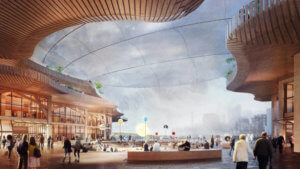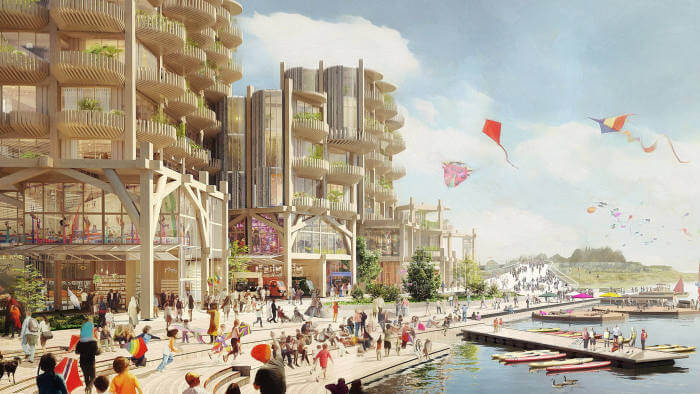Sidewalk Labs, a subsidiary of Alphabet, had first made its plan of building a smart city focused on technology, efficient infrastructure and dominated by self-driving cars public back in 2016.
Sidewalk Labs CEO Dan Dctoroff who is a former New York City deputy mayor, presented his idea to Alphabet CEO Larry Page and it looks like, almost four years later, their long-held dream might actually come to fruition.
The company released an extensive blueprint on Monday which outlines what the city of Toronto might look like in the future.
To begin with, Sidewalk Labs stated that the project will create around 1,700 mid-market homes and an estimated 44,000 jobs. The company also mentioned that cameras and sensors will be the foundation that will modernize Toronto’s Quayside and Villiers West areas.
Saudi Arabia Plans To Build Mega-City Of Renewables and Robots
The sensors will come accompanied by smart traffic lights and dynamic curbs that would either widen or shrink, depending on how busy the roads will prove to be at particular times of day.
The company is also paying attention to pollution: to avoid it as much as possible, Sidewalk Labs proposed a logistics hub as well as a network that will take care of deliveries underground.
It will also focus more on cyclists and make sure that all buildings can be accessed via bike lanes, even during winter when the problem of snow and ice will be taken care of thanks to heated pavement. It would definitely make Toronto’s notoriously cold winters more bearable for those who choose to travel on two wheels.

Of course, a tech city wouldn’t be a tech city without cameras. As mentioned earlier, they will be an important piece of the puzzle that will make the city a ‘smart’ city. The presence of cameras naturally raised questions about privacy and how the residents’ data will be collected, stored and used.
Sidewalk Labs assured everyone that they will not sell or use personal information for any sort of advertising nor would they disclose it to third parties unless the residents have given them their explicit consent that the company can do so.
In order to keep everyone’s worries at bay, Sidewalk Labs proposed the creation of an Urban Data Trust that will keep a close eye on the project.
The area Sidewalk Labs has chosen currently doesn’t have a lot of residents and all construction work will be as environmentally sustainable as possible and will be achieved by using timber, which would arrive from an Ontario timber factory.
Construction should begin as early as 2022, if the company manages to receive all the necessary approvals from the local officials and the Canadian government. If all goes well, the city officials are expected to vote on the plans in 2020.
The project would be finished in 2040 and will create a total of 93,000 jobs and is expected to generate $14.2 billion in annual gross domestic product.
Follow TechTheLead on Google News to get the news first.

























